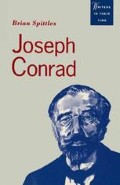Abstract
The roots of most of the anxieties, physical and metaphysical, of the late-Victorian/Edwardian period can be found earlier in the nineteenth century. Many of the philosophic concerns of Conrad’s writing lifetime emanated from the advance of science, and the popular interest which it gradually created. It is not insignificant that three of the most widely read novelists of Conrad’s period all dealt, in some way, with the ideas of science, in a demotic form. Robert Louis Stevenson’s The Strange Case of Dr Jekyll and Mr Hyde explored duality of personality in relation to scientific chemistry; Conan Doyle’s character Sherlock Holmes was a gentleman scientist who used the deductive method to solve mysteries; H. G. Wells wrote a number of novels in what has subsequently been categorised as the science fiction genre.
Preview
Unable to display preview. Download preview PDF.
Notes
Philip J. Davis and Reuben Hersh, Descartes’ Dream (Brighton: Harvester, 1986), p. 206.
Walter Pater, The Complete Works of Walter Pater, V (London: Macmillan, 1901), p. 66.
Richard L. Gregory, Mind in Science (Harmondsworth: Penguin, 1984), p. 538.
Redmond O’Hanlon, Joseph Conrad and Charles Darwin (Edinburgh: Salamander Press, 1984), p. 47.
Frances Spalding, Vanessa Bell (London: Macmillan, 1984), p. 92.
Virginia Woolf, Collected Essays, I (London: Hogarth Press, 1966), p. 320.
H. G. Wells, The Island of Doctor Moreau (Harmondsworth: Penguin, 1967), pp. 38–9.
Arthur Schopenhauer, translated by R. J. Hollingdale, Essays and Aphorisms (Harmondsworth: Penguin, 1978), p. 138.
John Galsworthy, Castles in Spain (London: Heinemann, 1927), p. 91
E. H. Gombrich, The Story of Art (London: Phaidon Press, 1966), pp. 428–9.
H. G. Wells, The Time Machine (London: Dent, Everyman’s Library, 1969), pp. 95–7.
Sir James George Frazer, The Golden Bough (London: Macmillan, 1980), p. 713.
James Ward, The Realm of Ends (Cambridge: University Press, 1912), pp. 128–9.
Copyright information
© 1992 Brian Spittles
About this chapter
Cite this chapter
Spittles, B. (1992). The Entropic Labyrinth. In: Joseph Conrad. Writers in their Time. Palgrave, London. https://doi.org/10.1007/978-1-349-22205-6_7
Download citation
DOI: https://doi.org/10.1007/978-1-349-22205-6_7
Publisher Name: Palgrave, London
Print ISBN: 978-0-333-54201-9
Online ISBN: 978-1-349-22205-6
eBook Packages: Palgrave Social & Cultural Studies CollectionSocial Sciences (R0)

